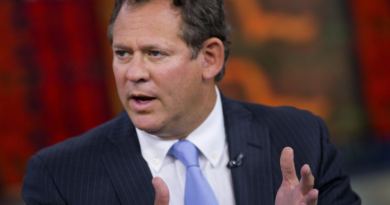One of Wall Street's biggest Tesla bulls rips Elon Musk's 'train wreck' earnings call: 'We wrongly expected adults in the room'
Tesla stock plummeted more than 12% on Thursday after the company missed analysts’ revenue and earnings estimates in the fourth quarter and predicted “notably lower” EV sales growth this year. The drop, which took $82 billion out of Tesla’s market cap, was the worst single-day performance for shares of Elon Musk’s EV giant since the 21% plunge seen in September 2020—and analysts were quick to criticize management.
Wedbush Securities’ Dan Ives, a noted Tesla bull, said in a Thursday note that the company’s earnings call left Wall Street with “minimal answers and lots of questions and frustration yet again.”
Investors were looking for specifics regarding declining margins and the seemingly “never-ending” string of EV price cuts at Tesla, Ives said, but instead they got a “more cautious” Musk who was focused on the production of next-gen EVs as well as full-self-driving and AI investments.
“We were dead wrong expecting Musk and team to step up like adults in the room on the call and give a strategic and financial overview of the ongoing price cuts, margin structure, and fluctuating demand,” Ives wrote. “Instead we got a high level Tesla long term view with another train wreck conference call.”
Shaky earnings
Tesla’s reported fourth-quarter revenue of $25.17 billion on Wednesday, well below Wall Street’s estimate for $25.64 billion, and an increase of just 3% from a year ago. At the same time, the company’s gross profit margin, which has been investors’ main focus in recent quarters amid repeated EV price cuts, sank to 17.6%, from 23.8% in the same period a year ago. Tack on the outlook for “notably lower” EV sales growth in 2024 compared to 2023, and it was a “bitter pill to swallow” for Tesla’s stockholders, Ives said.
On the call, Tesla warned that it is stuck “between two major growth phases” as it develops next-gen EVs, full-self-driving tech, and AI and robotics offerings. On that front, Musk said that it was “quite likely” that Tesla’s $25,000 entry-level EV would launch as soon as late 2025, but offered only “relatively superficial comments” about his new humanoid robot, Optimus, and full-self-driving beta testing, according to Morgan Stanley analyst Adam Jonas.
The long-term story
Despite the poor earnings report, Wedbush’s Ives maintained his buy-equivalent “outperform” rating on Tesla shares. He did lower his 12-month price target from $350 to $315, arguing that the potential for more EV price cuts and a lack of concrete margin and sales guidance amount to a “category 4 storm” for the company. But overall, he said he believes the long-term growth story at Tesla still remains intact and that mass-market adoption of full-self-driving technology and EVs will eventually boost the company’s earnings.
“Our near-term confidence in the story is shaken, but we remain firm on a long term bull thesis around Tesla and the broader AI story set to take hold. This is a pivotal period for Musk to get Tesla through that will help shape (or haunt) its EV future,” he wrote.
CFRA Research analyst Garrett Nelson also remains bullish. Nelson reiterated his “buy” rating for Tesla on Wednesday, arguing that the production of low-cost, mass-market EV in 2025 “could be the catalyst the stock needs.”
“While the bottom-line miss was disappointing and uncharacteristic, as the low-cost U.S. EV producer and with prices appearing to be nearing an inflection point, we see significant earnings leverage for TSLA,” he wrote.
On the other hand, Tesla’s bears came out firing this week. Gordon Johnson, founder and CEO of GLJ Research, argued in a Thursday note that Tesla’s fourth-quarter numbers show it is just a “struggling car company,” and not the high-growth AI, robotics, and green energy powerhouse that its supporters see.
Johnson maintained his “sell” rating and $23.53 price target for Tesla, which represents 87% potential downside, and argued Musk is nothing but “the world’s (most successful) sleazy used car salesman.”




